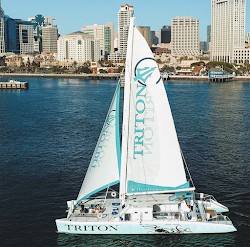November 21, 2017
At least fifteen lawsuits have been filed against some of San Diego's most popular restaurants alleging that a controversial surcharge amounts to an illegal practice in violation of California law.
Some of San Diego's top restaurants - including George's at the Cove, Tom Ham's Lighthouse, Bali Hai, Sammy's Woodfired Pizza & Grill, and numerous Cohn Restaurant Group establishments - have been named as defendants in a case requesting to be filed as a class action suit brought on behalf of various plaintiffs by attorneys Kevin Lemieux and Robert Hyde from Hyde & Swigard law firm. The complaint states that the named restaurants violated California's False Advertising Law, Unfair Business Competition Law, and the California Consumers Legal Remedies Act by adding deceptive surcharges on customers' bills. The firm expects to file as many as 20 such lawsuits by the end of 2017.
In an effort to battle the rising costs of food and gas, as well as San Diego's increasing minimum wage, which jumped to $11.50 an hour in January - the second such hike in a six month period - many area restaurants started adding a surcharge ranging from 2-4 percent of customers' total bill. In addition to the private lawsuit, the surcharges have also been subject to scrutiny by the city.
The San Diego City Attorney's Office has attempted to address businesses who fail to clearly advertise the implementation of a surcharge. A civil action was filed against Barefoot Bar & Grill at Paradise Point Resort & Spa for failing to disclose the surcharge, then later, adding it to the bottom of the menu in fine print. A warning letter was first sent to the restaurant at the end of August, citing a violation of false advertising rules and restrictions.
Many San Diego restaurateurs have stated that the surcharge has been implemented to close the wage difference between back-of-the-house staff and servers, who statically earn far more due to tips. Restaurant owners argue that the surcharge gives them the ability to more fairly distribute pay to all workers, as a server cannot be forced to share gratuity payments with kitchen staff under California law. Some patrons questions why the restaurants do not raise prices rather than add an extra charge, but the general consensus among owners is that increasing prices on the menu would only result in the server receiving larger tips and would do nothing to fix the discrepancy between wages among staffers.
At least fifteen lawsuits have been filed against some of San Diego's most popular restaurants alleging that a controversial surcharge amounts to an illegal practice in violation of California law.
Some of San Diego's top restaurants - including George's at the Cove, Tom Ham's Lighthouse, Bali Hai, Sammy's Woodfired Pizza & Grill, and numerous Cohn Restaurant Group establishments - have been named as defendants in a case requesting to be filed as a class action suit brought on behalf of various plaintiffs by attorneys Kevin Lemieux and Robert Hyde from Hyde & Swigard law firm. The complaint states that the named restaurants violated California's False Advertising Law, Unfair Business Competition Law, and the California Consumers Legal Remedies Act by adding deceptive surcharges on customers' bills. The firm expects to file as many as 20 such lawsuits by the end of 2017.
In an effort to battle the rising costs of food and gas, as well as San Diego's increasing minimum wage, which jumped to $11.50 an hour in January - the second such hike in a six month period - many area restaurants started adding a surcharge ranging from 2-4 percent of customers' total bill. In addition to the private lawsuit, the surcharges have also been subject to scrutiny by the city.
The San Diego City Attorney's Office has attempted to address businesses who fail to clearly advertise the implementation of a surcharge. A civil action was filed against Barefoot Bar & Grill at Paradise Point Resort & Spa for failing to disclose the surcharge, then later, adding it to the bottom of the menu in fine print. A warning letter was first sent to the restaurant at the end of August, citing a violation of false advertising rules and restrictions.
Many San Diego restaurateurs have stated that the surcharge has been implemented to close the wage difference between back-of-the-house staff and servers, who statically earn far more due to tips. Restaurant owners argue that the surcharge gives them the ability to more fairly distribute pay to all workers, as a server cannot be forced to share gratuity payments with kitchen staff under California law. Some patrons questions why the restaurants do not raise prices rather than add an extra charge, but the general consensus among owners is that increasing prices on the menu would only result in the server receiving larger tips and would do nothing to fix the discrepancy between wages among staffers.
Check out the below complaint against Tom Ham's Lighthouse for more detailed information.































